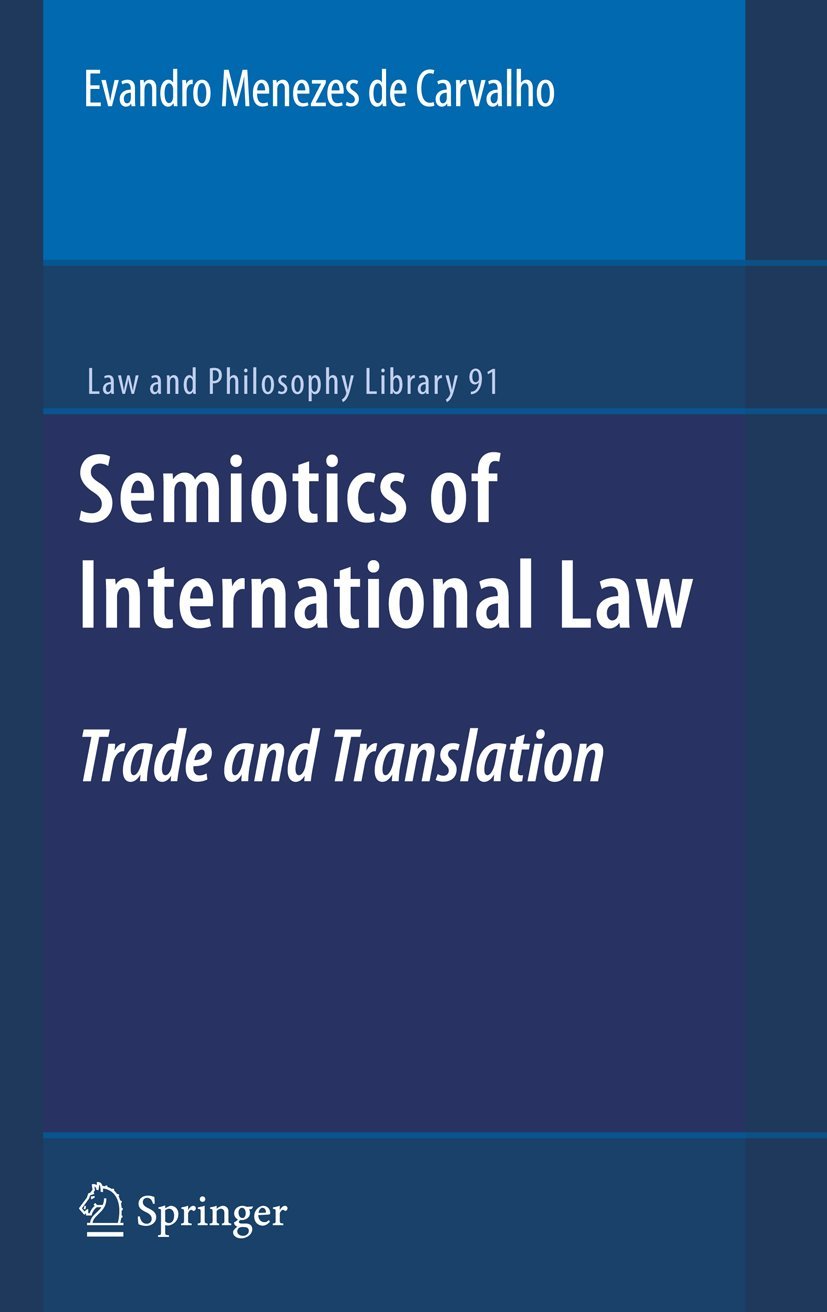Semiotics of International Law: Trade and Translation: 91 (Law and Philosophy Library)
Semiotics of International Law: Trade and Translation: 91 (Law and Philosophy Library) is backordered and will ship as soon as it is back in stock.
Couldn't load pickup availability
Genuine Products Guarantee
Genuine Products Guarantee
We guarantee 100% genuine products, and if proven otherwise, we will compensate you with 10 times the product's cost.
Delivery and Shipping
Delivery and Shipping
Products are generally ready for dispatch within 1 day and typically reach you in 3 to 5 days.
Book Details
-
Author: Evandro Menezes de Carvalho
-
Publisher: Springer
-
Edition: 2011 Edition
-
Binding: Hardcover
-
Format: Import
-
Number of Pages: 220
-
Release Date: 31st October 2010
-
ISBN: 9789048190102
-
Languages: English
-
Package Dimensions: 9.1 x 6.1 x 1.0 inches
About the Book
Semiotics of International Law: Trade and Translation by Evandro Menezes de Carvalho explores the intricate relationship between language and international law. It argues that language does more than convey meaning; it shapes how we understand and engage with the world. Legal systems, expressed through national languages, organize the law according to each culture’s interpretation of reality, which creates unique challenges when these systems intersect in the international arena.
This book examines how different legal cultures and languages affect international law, particularly in terms of legal translation, a field often overlooked in traditional legal scholarship. Through an analysis of the WTO’s Appellate Body’s decision-making process and legal discourse, the author highlights the significant role of language in shaping diplomatic negotiations and the interpretation of international law.
The book delves into how the diversity of languages and legal systems can either enrich or complicate the development and application of international law, emphasizing that any discussion on the legitimacy and effectiveness of international law must account for its linguistic dimensions. It is an essential read for scholars, legal professionals, and students of international law, especially those interested in the intersection of language, law, and global governance.





